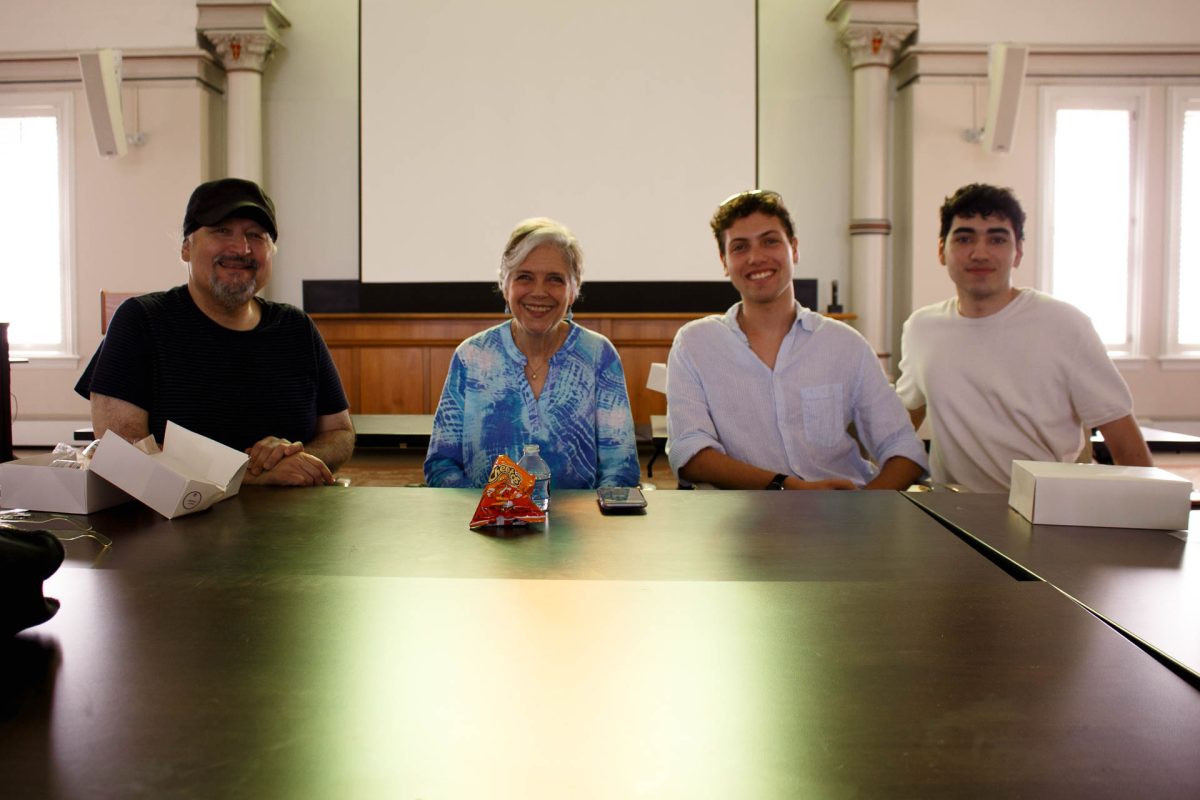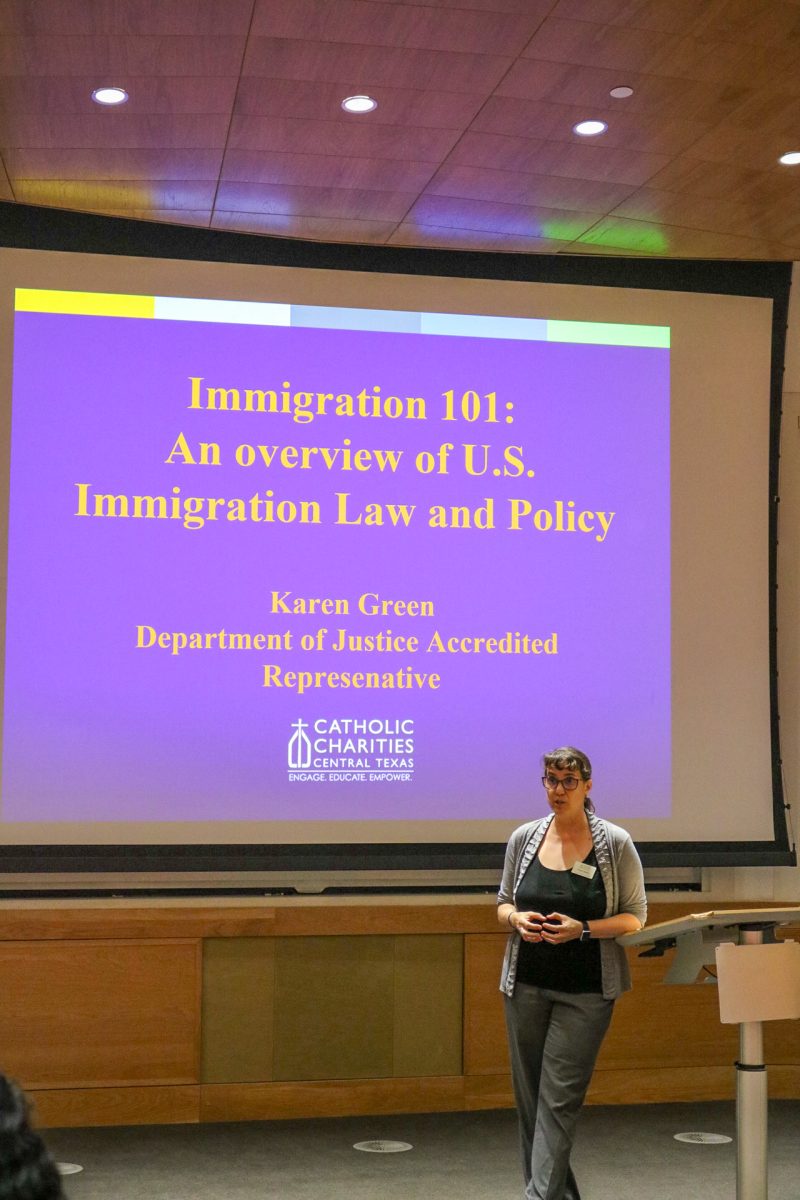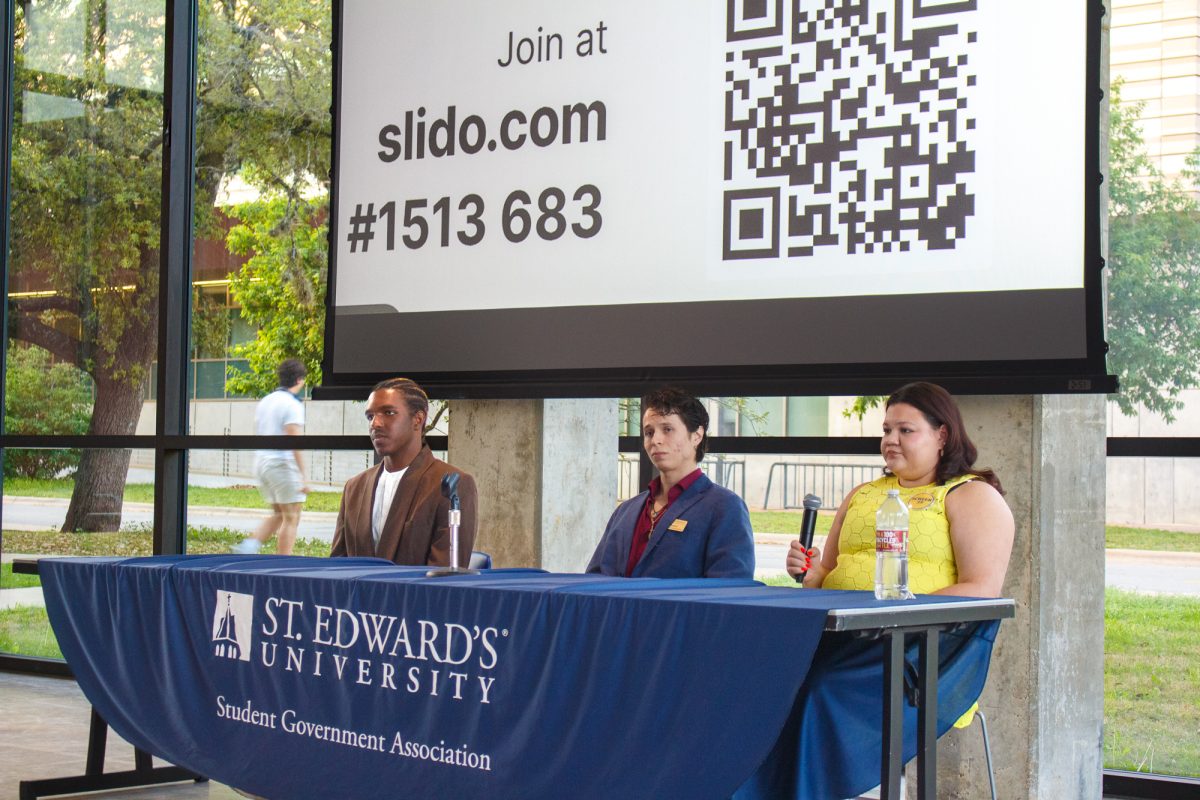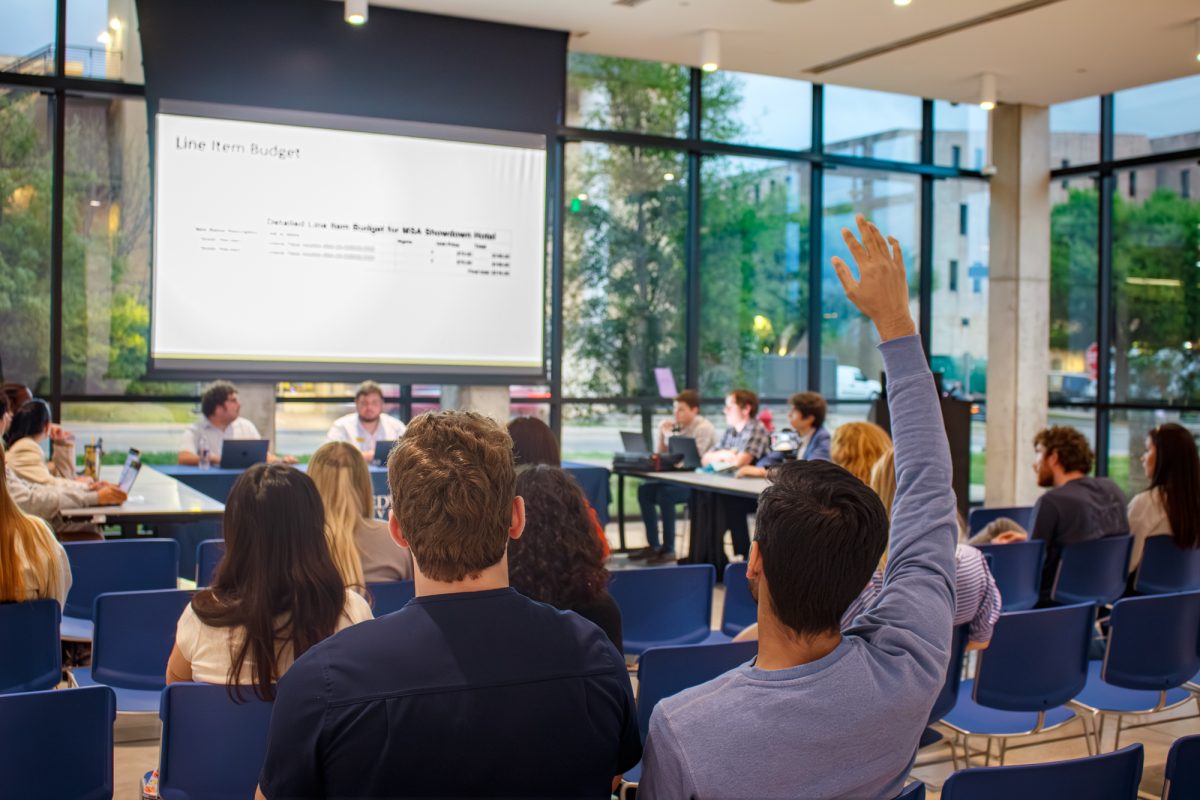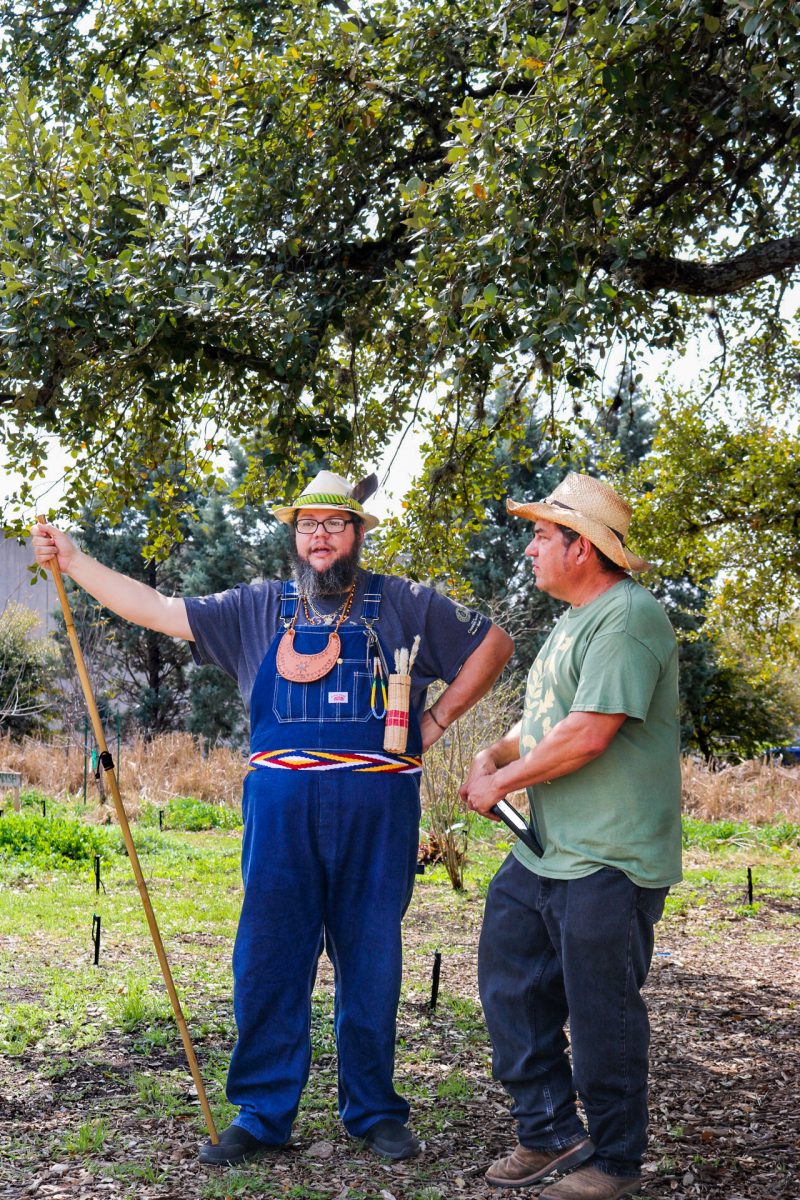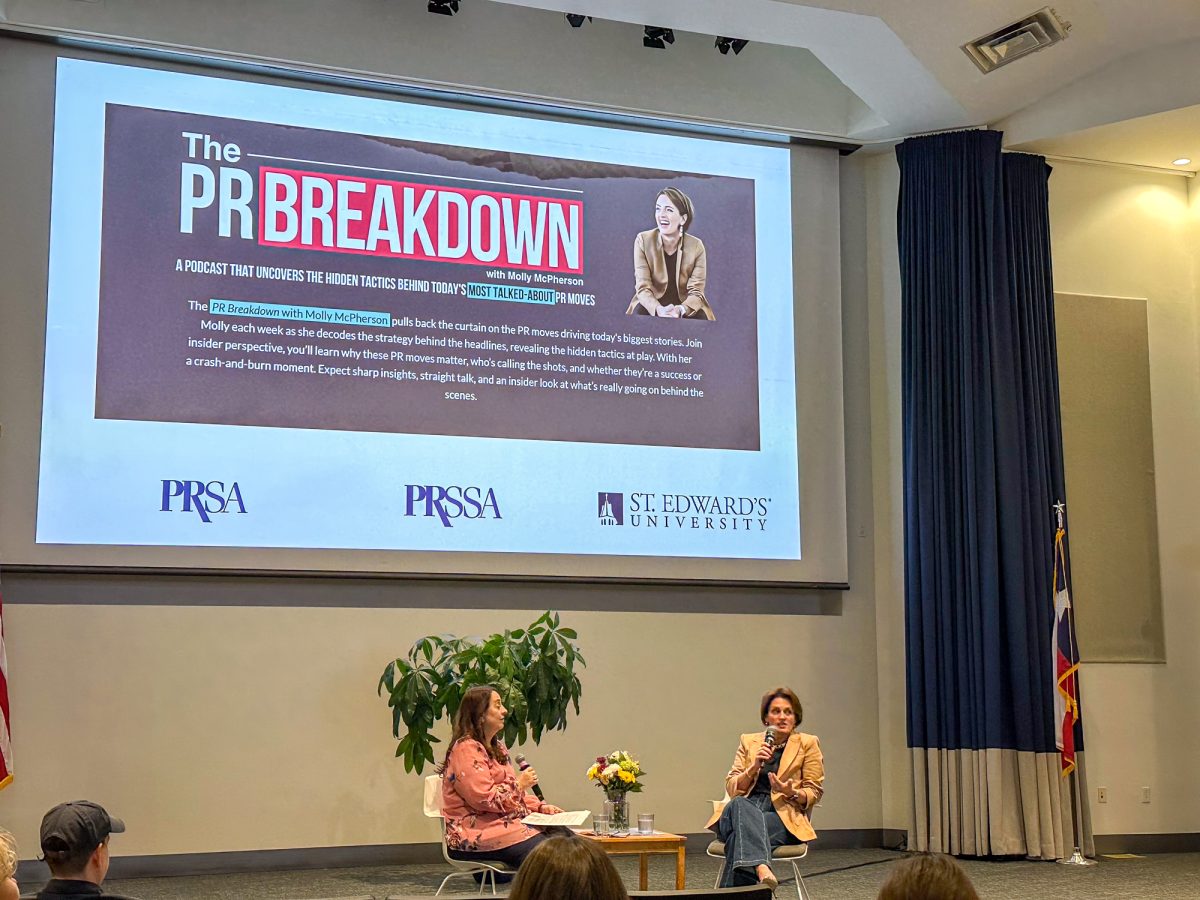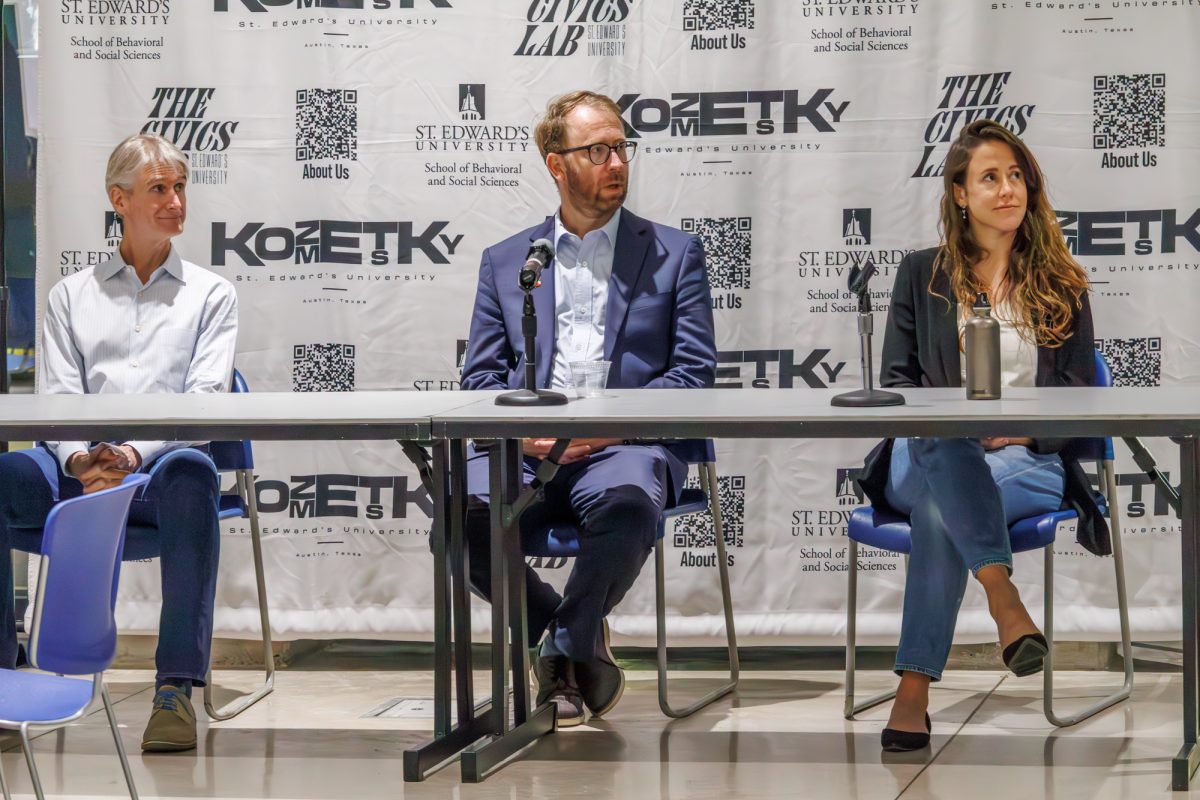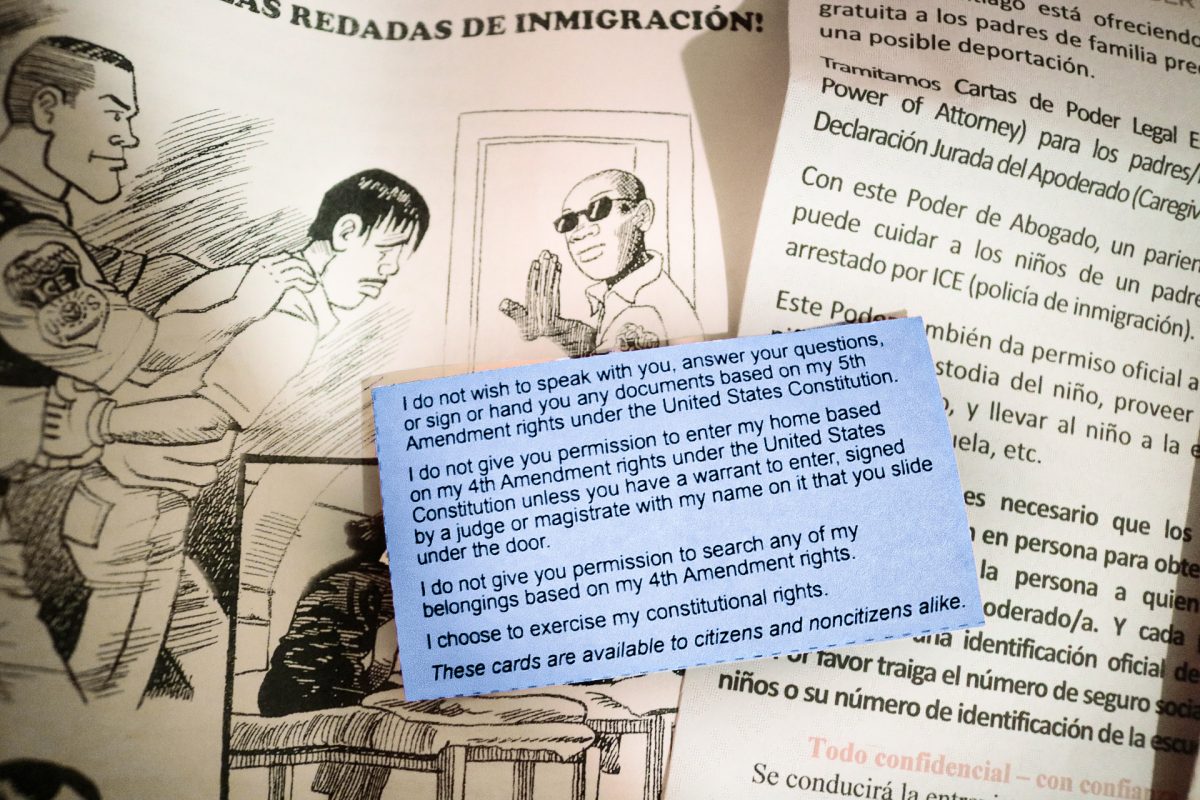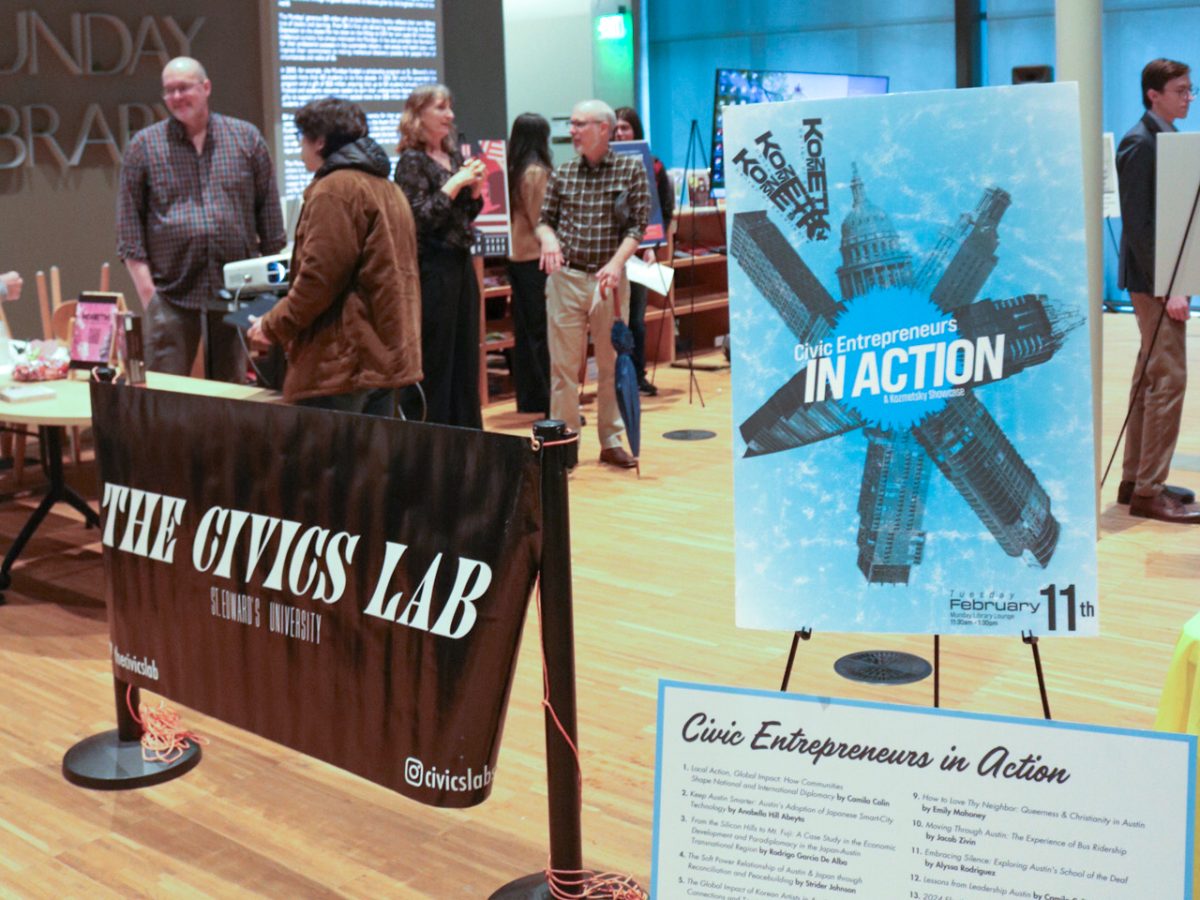The St. Edward’s philosophy department hosted the latest event in their “Food and Philosophy” speaker series with a guest lecture from a professor from Austin Community College. Linda Mackey, Ph. D, led the talk, titled “What Dr. Martin Luther King, Jr. and the Civil Rights Movement Teach Us about Philosophy.” It was centered around the intercultural dialogues found within the teachings of Dr. King Jr. and modern applications of them.
The Food and Philosophy series provides students with free box lunches of varying meats and gluten-free options and talks from various professors around ideas of philosophy. The current series is a continuation of the series Associate Professor Jack Musselman, Ph.D., hosted before the pandemic.
“I was at a conference this past summer, the Council of Independent Colleges, which was a consortium of 400 colleges,” Musselman said. “It was full of philosophers spending four days talking about teaching and how to do it better. When I left, they stated that they had a little money for me to try and get philosophy revived in the world. So I decided to revive the series, and the money from the council pays for the lunches and a small travel stipend for the speakers.”
This travel stipend was what allowed Mackey to come present her own socratic seminar on the relation between Dr. King Jr. and philosophy. Mackey began by asking each viewer to sit in a circle at the lecture, and then asked what each person’s level of knowledge about the Civil Rights Movement was, which was met with varied responses.
She then moved on by describing what originated the need for a Civil Rights Movement in America. Even after the emancipation of African American slaves in 1863 and the passage of the Reconstruction Amendments, which were meant to create equality in the nation, racism and oppression were enshrined in Southern living.
“Because of the people in the South, the Jim Crow laws were created to keep the black people down,” Mackey said. “It was a whole set of laws to keep to enforce segregation. And to deny the black people the right to vote. They had to educate the people, all people, because that was in the Constitution. But they created separate schools for the black children that were inferior.”
To the unknowing individual, this would seem to have no relation to the philosophy of Dr. King, but she then related this to the Theories of Natural Law proposed by St. Thomas Aquinas, which Dr. King spoke explicitly about in his Letter from Birmingham Jail.
With this, the central argument of her lecture was stated that “unjust laws are no laws at all and require nonviolent resistance.” This is a philosophical tenet held by Dr. King, Gandhi and Socrates, which Mackey pointed out to illustrate the intercultural connection between all of the philosophers.
An attendee of the seminar informed Mackey about the recent events happening on campus surrounding a Pride Flag removed from campus.
“That is exactly what nonviolent resistance is, being persistent until change occurs,” Mackey said.
Sophomore Santiago León Sandoval was an attendee at the event and commented on the connection between all of these movements and their informal connection to each other.
“I think what she talked about the black rights movement also is true of other movements, like the gay rights movement and also the women’s movements, which I think is really incredible to see, even though the communication between them did not actually happen,” Sandoval said.
The next event in the Food and Philosophy series is set to commence on March 25 with SEU philosophy Professor and Department Chair Mark Cherry, Ph.D., presenting on the topic “What Happens if the Brain Goes Elsewhere? Reflections on Head Transplantation and Personal Embodiment.”


